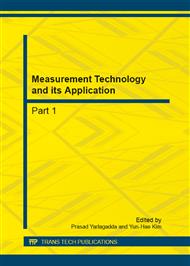p.229
p.233
p.238
p.243
p.247
p.253
p.258
p.264
p.270
Research on the Free Choice Cooperative Learning: Taking the Optical Fiber Circuit Measurement as the Problem-Solving Example
Abstract:
This study is aimed at exploring how the concept of dynamic routing of the router give light to the cooperative learning, and according to this, Free Choice Cooperative Learning was thus developed to tackle the learning results resulted from the problem of the optical fiber circuit measurement. The research taker adopted purposive sampling by using 15 students as the study object of a particular Technology Institute located on the South of Taiwan and employed two types of score sheets of the optical fiber circuit measurement to collect the pre-test and post-test school record respectively regarding how the case class learn from tackling with the problem of the optical fiber circuit measurement so as to benefit the research taker analyzing on the study result of the study object. And the study findings shows: (A) Free Choice Cooperative Learning achieved a prominent active study result regarding to how the students tackle the problem of the optical fiber circuit measurement; (B) the students of high-scoring and low-scoring group with the values of Free Choice Cooperative Learning show a study result that tackles with the problem of the optical fiber circuit measurement has not yet achieved a prominent divergence. To declare the Free Choice Cooperative Learning context that is endowed with active study result regarding to how to tackle the problem of the optical fiber circuit measurement and will not make any difference due to different values on Free Choice Cooperative Learning.
Info:
Periodical:
Pages:
247-250
Citation:
Online since:
December 2012
Authors:
Price:
Сopyright:
© 2013 Trans Tech Publications Ltd. All Rights Reserved
Share:
Citation:


